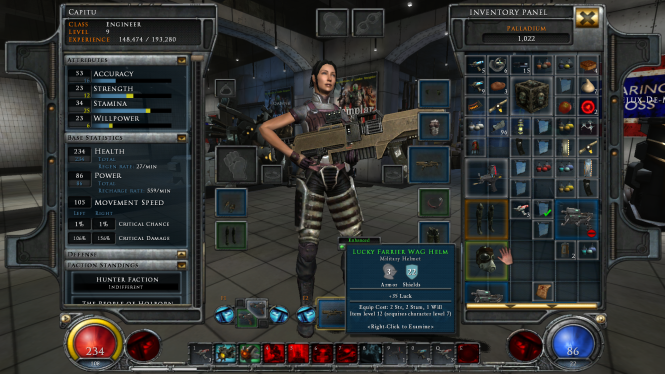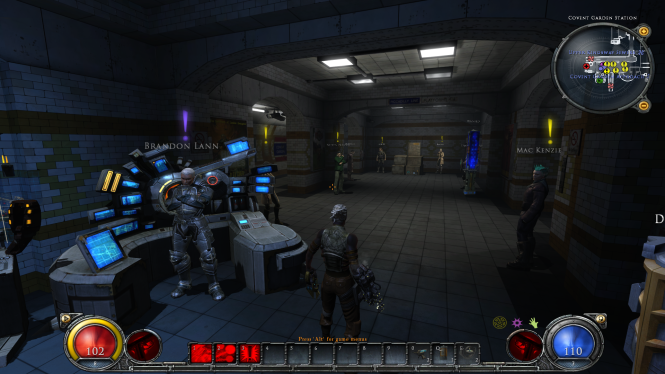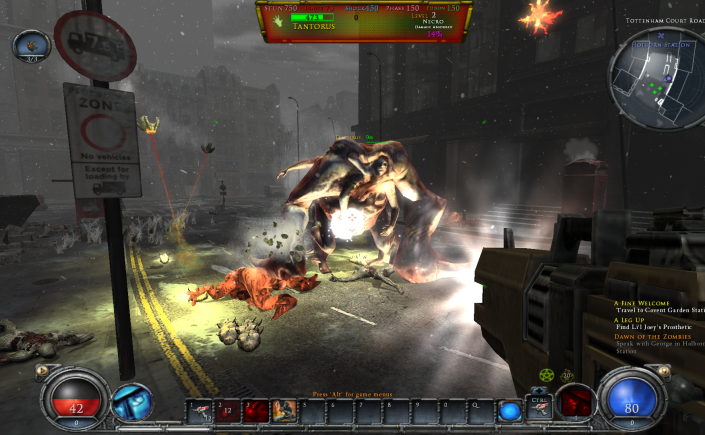I clearly remember myself watching the fantastic trailer for Hellgate: London, awestruck by the promise of a Diablo/FPS hybrid where high-tech holy warriors fought hordes of demons in the ruins of a post-apocalyptic London. I would shoot flying demons with holy rifles, unleash spells from balconies of gothic buildings and they would fall one by one, spewing out incredible amounts of loot!

At a quick glance the promises were delivered. Hellgate’s action is fast-paced, there are interesting weapons with unusual mechanics, plus cool monsters and bosses. The art direction is tight and consistent, darkness is used cleverly in some areas, buildings have several stories for you to traverse and loot pours out of monsters like there’s no tomorrow.
The game presents three archetypes to choose from, each divided into two sub-classes. Blademasters and Guardians are melee warriors; Summoners and Evokers are spellcasters; Marksmen and Engineers are ranged attackers. Depending on your weapons, you can switch between a first or third-person camera.

With these features, former Blizzard North devs at the helm and a fine marketing campaign, Hellgate was highly hyped and sold nearly one million copies.
Then came the fall. It quickly became evident to players that content was lacking – they were just walking in the same corridors and fighting the same monsters. The only thing that changed was their HP and damage, plus a few poorly balanced skills.

Valuing quantity over quality, designers over relied on MMO type fetch quests – everything was based on “collect this artifact”, “kill this monster”, “collect X body parts from X type of monster”.

Like Diablo II the game could be played either online or offline, but only those paying a monthly “Elite” subscription of $10 (or a lifetime fee of $149) would get content updates, such as new dungeons and items. Regardless, all players had to deal with server issues, character resets, crashes and bugs.
And so, a year after Hellgate’s release, Flagship went bankrupt, closing the game servers soon after. A Korean company then bought the game and re-launched it in 2011 as Hellgate Global – this time free-to-play and with new Tokyo areas. Criticized for its “pay-to-win” progression, it lasted until January 2016 – with a Chinese company then buying the rights and re-releasing it in China as Hellgate: Reborn.
Few games get this amount of hype and chances, but while Hellgate: London had a brilliant concept, it failed to deliver. Borderlands (2009) would soon prove just how well “Diablo with guns” could work. Grathanich

